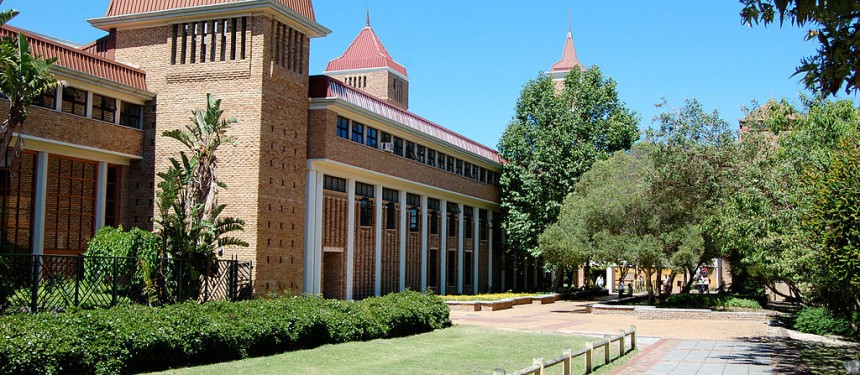Affordable fees and a strong reputation for higher education are among the main draws attracting students to South Africa, but discrimination and difficulty finding affordable accommodation are significant obstacles, the first major survey of international students in the country has revealed.
News and business analysis for Professionals in International Education
Have some pie!
Affordability, reputation draw students to South Africa
 The study compiled responses from 1,682 international students at seven South African Universities, including Uniersity of the Western Cape, pictured above. Photo: Danmichaelo.
The study compiled responses from 1,682 international students at seven South African Universities, including Uniersity of the Western Cape, pictured above. Photo: Danmichaelo. Improved employability and opportunities for academic research also helped to entice students to study in the country.
“The patterns that I have observed in South Africa are actually quite similar to my findings in the US, South Korea, and Mexico”
Students from the region cited proximity to home and government subsidies allowing members of 15 states to pay the same fees as domestic students under the Southern African Development Community (SADC) protocol as important factors in their decision to study in South Africa.
“When I started the research, I expected that the findings would be noticeably different, but was actually quite surprised to find the patterns that I have observed in South Africa are actually quite similar to my findings in the US, South Korea, and Mexico,” co-author Jenny Lee, a University of Arizona Professor and Fulbright Scholar in South Africa, told The PIE News.
“Simply put, international students want a better quality education than what they might find at home and they believe there are benefits to earning an international degree.”
Of the 1,682 international students at seven universities who took part in the study, co-authored with Chika Sehoole, Associate Professor at the University of Pretoria, 79% were from Africa, 8% each from Europe and North America and 4% were from Asia.
According to the International Education Association of South Africa (IEASA), there were nearly 73,000 international students in South Africa in 2012, up from 12,600 a decade ago, but Lee said that she was interested in researching South Africa due to the “relative lack of empirical international higher education research” on the continent compared to her previous areas of research including Latin America and East Asia.
“Africa is commonly viewed as a victim of brain drain but there is actually quite a bit of mobility within and to the continent,” she explained. “South Africa is a leader in this regard.”
Just 17% of the students surveyed said that most of their friends were South African. “International students in South Africa, as reported elsewhere in the world, struggle in adapting to the host community and making friends with local students,” Lee commented.
Two thirds of respondents said they felt it was more difficult for international students to feel safe in South Africa than for domestic students, and 44% said they felt they were treated worse than domestic students outside of university.
The study showed that discrimination is particularly prevalent off campus; 35% of students said they had experienced discrimination because of their nationality and 30% because of their race while off campus, compared to 20% and 18% respectively on campus.
“Accommodation is a huge problem with discriminative rental practices by some agencies”
The study also compiled interviews with 50 students from five universities, which revealed that students from Africa face higher levels of discrimination than those from other areas of the world, which Lee attributed to “unsubstantiated but prevalent” stereotypes.
“For this reason, black African students have reported more mistreatment, despite being of the same racial background as most local South Africans,” she explained. “Students from neighbouring African countries have been stereotypically perceived as less developed, poor, and as threats to job security in the country.”
In a related finding, 46% of students said they experienced difficulty with accommodation or transport. One student told the researchers: “Accommodation is a huge problem with discriminative rental practices by some rental agencies such as requiring the rental amount for the whole year upfront if you are a foreigner while locals are on month to month payment plans.”
When it came to choosing which university to attend, quality of education and the availability of a specific programme were the main deciders while students also cited geographical location and teaching in English as important factors.
Only 14% of students said they used university recruiters and study fairs as a source of information when choosing their university, and just 9% drew on private recruiters. In addition, two thirds said counsellors and professors at their university did not inform their decision.
Still looking? Find by category:



8 Responses to Affordability, reputation draw students to South Africa